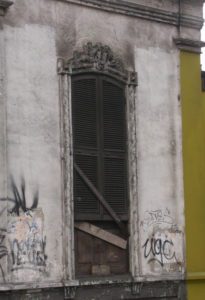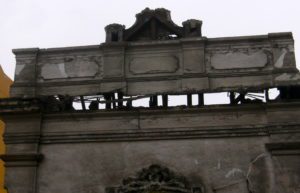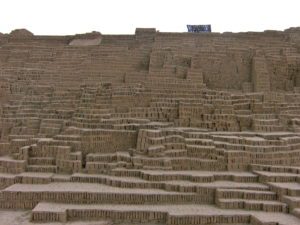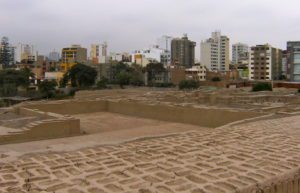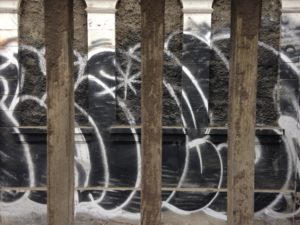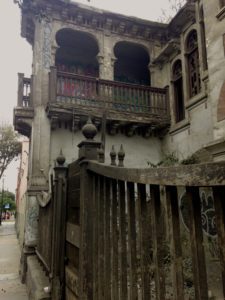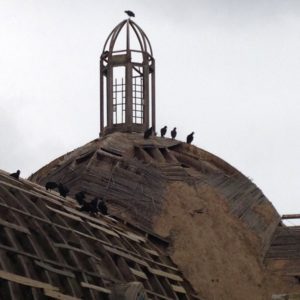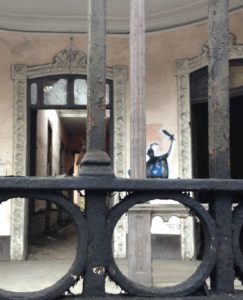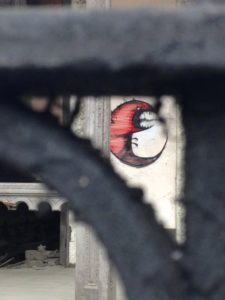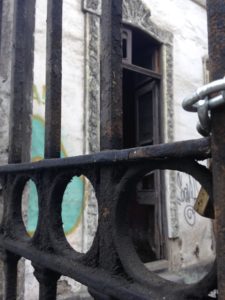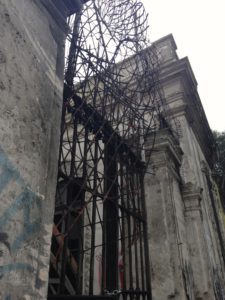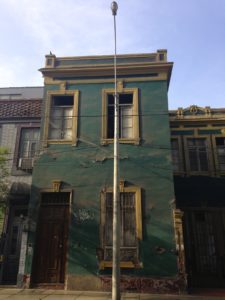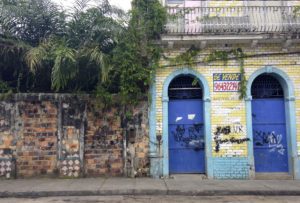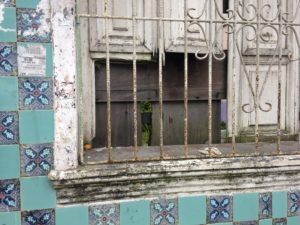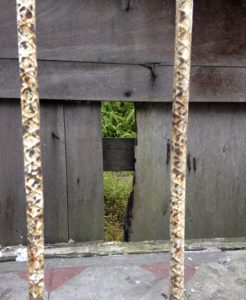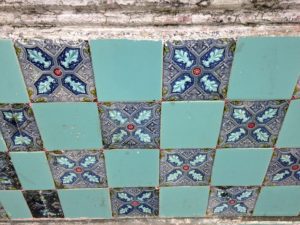#beyondwallsUtah
Diaspora, Displacements and Transnational Communities invites you:
3PM, April 10, 2019
Gardner Commons 4660, University of Utah
In 2015, it was estimated that 244,467 immigrants resided in Utah. In spite of a long history of movement across the Americas, into the Americas, and into Utah, migrant (im)mobility continues to be shaped by anti-immigration rhetoric and policies. These policies encompass a long history that spans from 1882 Chinese Exclusion Act to more contemporary orders such as Executive Order 13769. Additionally, ongoing discussions of “building a wall” impact communities and people who are transnational workers, support transnational families, are part of transnational networks, or seeking refuge.
Join the students of Ethnic Studies – Diaspora, Displacements and Transnational Communities – for a discussion of migrant stories and walls. Students will discuss, with an ethnic studies lens, how a rhetoric of walls, criminalization, surveillance, and xenophobia shape migrant 21st century experience. The class invites participants to join us – we will gather, discuss, listen and read fragments, excerpts, parts of migratory lives placed around the Marriott library. The discussion will begin on April 10 at 3PM at Gardner Commons 4660 (260 Central Campus Drive, Room 4660).
Questions? Contact Dr. Annie Isabel Fukushima, a.fukushima@utah.edu, Ethnic Studies, University of Utah
#beyondwallsUtah
migratorytimes.net
About Translating Geographies of Displacement
Welcome to the inaugural session of the online space of Migratory Times, “Translating Geographies of Displacement.” This session, co-organized by Dalida María Benfield and Annie Isabel Fukushima, addresses questions of voice, nation, migration, race, gender, gentrification and property. The session also frames a constellation of events that inaugurated Migratory Times in December 2016 and January 2017. These include Geographies of Displacement, a panel discussion at the Los Angeles Municipal Gallery organized by at land’s edge; Translating Geographies of Displacement, a workshop organized by Jane Jin Kaisen and Dalida María Benfield at Sörte Firkant, Copenhagen; For More Than One Voice, a performance by Jane Jin Kaisen and Stina Hasse Jørgensen, also at Sörte Firkant, Copenhagen; and Displacing Geographies, an online salon held in January 2017 with the collective @criticaldias (Diasporas Críticas). This session also features writings and artworks by Alanna Lockward and Patricia Kaersenhout, Tara Daly, Choralyne Dumesnil, Annie Fukushima, and Rolando Vázquez. Each of these works elicit a further interrogation of the terms of transnational mobilities and immobilities in relation to gender, race, class, property, and nation.
Migratory Times was launched in 2016 as a series of pedagogical and artistic interventions addressing situations of global migrations and displacements. The initial organizing team of Migratory Times was Damali Abrams, Dalida María Benfield, Michelle Dizon, Annie Isabel Fukushima, Jane Jin Kaisen, and tammy ko Robinson. Collaborating artists and researchers (2016-2018) included: Clara Balaguer, Kiri Dalena, @criticaldias (Diasporas Críticas), Renan Laru-An, Guston Sondin Kung, Pedro Pablo Gomez Moreno, and Camilo Ontiveros, and events occurred in New York, Detroit, Salt Lake City, and Los Angeles, U.S.A.; Copenhagen and Aarhus, Denmark; Jeju and Seoul, S. Korea; Mindanao and Manila, Phillipines; and Bogotá, Colombia. Documentation of the previous Migratory Times series of interventions will be published here on an ongoing basis, along with newly commissioned works and archives of related essays and artworks.
Submissions of writings and artworks related to gender, race, geopolitics, and global migration are welcome on an ongoing basis, and should be addressed to the editorial collective at instituteofimpossiblesubjects@gmail.com. The editorial collective will respond to submissions, if accepted for future publication, within 30 days.
We dedicate this first session to our compañera Alanna Lockward (1961-2019), whose spirit sustains us.
Geographies of Displacement, a panel discussion in Los Angeles
Geographies of Displacement was a panel discussion organized by at land’s edge in conjunction with the Migratory Times project of the Institute of (im)Possible Subjects. It was held at the Los Angeles Municipal Gallery, on Dec. 15, 2016. The event brought together for discussion six anti-gentrification groups across East and South Los Angeles: the Crenshaw Subway Coalition, Defend Boyle Heights, North East Los Angeles Alliance, LA Tenants Union, School of Echoes, and Uplifting Inglewood. In the gathering, groups shared their organizing work, contextualized the specific ways in which gentrification is taking place in their neighborhoods, and addressed how the role of the culture industry opens communities to speculative real estate practices. They considered how practices of solidarity can develop into a city-wide movement against unjust displacement.
For More Than One Voice
For More Than One Voice is a collective reading that investigates how we might speak and listen to more than one voice in ways that allow resonance, polyphony, dissonance, ambiguity, plurality and embrace. The collective reading has been performed at NLH Space (Cph.) as part of Stemmer curated by Mette Garfield and Miriam Wistreich; at Den Frie Udstillingsbygning (Cph.) as part of Scripted, edited and organized by Trine Mee Sook Gleerup, Maria Bordorff and Mathias Kryger in collaboration with Eller med a; and with Stina Jasse Jorgensen, organized by Dalida María Benfield and the Institute of (im)Possible Subjects as part of the Migratory Times series of events, at Sörte Firkant (Cph.).
Dislocating Geographies, an online salon
Dislocating Geographies was an online discussion held as part of the Migratory Times series of online “Salons” – transnational discussions on issues related to gender, race, migration, and geopolitics.
“Dislocating Geographies” Migratory Times Salon Series
Sun, Jan 29, 2017 10 AM PST / 11:00 AM MST / 1 PM EST/COT / 7 PM ECT/ January 30 1 AM ICT/ January 30 2 AM PHT / January 30 3 AM KST/
An online discussion
Questions we will navigate during this first salon include: What are displacements and gentrification? How do they manifest in our different localities? How do displacements and gentrification shape local and transnational lives? What are the conditions creating such phenomenon? What sort of dislocations are created through processes of gentrification and global capitalism? How do the events we organized in December address these questions? How might we move forward with these discussions together?
Purpose of the monthly Salons
The salon series is part of our platform, “Migratory Times,” designed to create spaces for thinking together, creating actions, and materializing new content for exhibitions and publications that focus on themes related to migration, gender, and the times and spaces of displacements. The Institute of (im)Possible Subjects is a transnational feminist network that seeks to build transdisciplinary learning communities of artists, researchers, designers, filmmakers, writers, activists, people, and collectives.
Before the event:
Watch this video from at land’s edge, Los Angeles, USA – Geographies of Displacement: https://vimeo.com/198894557/419b1a8015
Preview the content from Translating Geographies of Displacement workshop that occurred in Copenhagen, Denmark, Dec. 9: https://www.dropbox.com/sh/savf0rmxq00x88s/AACsJ1emxkwh6qrdwxRfbfTXa?dl=0
This event is in partnership with at land’s edge:
at land’s edge is an autonomous pedagogical platform based in East and South Los Angeles that nurtures the voices of cultural producers who are committed to social transformation. We understand pedagogy as not only a method of education, but as a critical space where the processes of teaching and learning, knowledge and action, and self and community are reflexive, interwoven, and oriented toward the liberatory possibilities of a just and democratic world.
Interested in viewing via webcast? To watch the event: https://youtu.be/P75gtEA6zDI
Translating Geographies of Displacement, a workshop in Copenhagen
Translating Geographies of Displacement
A workshop organized by Jane Jin Kaisen and Dalida María Benfield
Convened by Migratory Times, the Institute of (im)Possible Subjects, For More Than One Voice, and at land’s edge
Dec. 9, 2016 12 – 15:00
Sorte Firkant
Blågårdsgade 29 A-E, 2200 København N
How are migratory voices being heard? And where? Who has the right/space to speak? How are we, collectively, responding to the politics of voice in relation to current restrictions on being able to inhabit space and to voice/speak? Sharing ideas and knowledge in multiple dialogical modes, among others a collective performative reading and a cartography of our shared situated knowledge, this workshop will reflect on spaces and rights; displacements and resistance.
This workshop was conceived as a conversation with Geographies of Displacement, held in Los Angeles on Dec. 15, 2016, organized by at land’s edge, an autonomous pedagogical platform based in East and South Los Angeles. at land’s edge nurtures the voices of cultural producers who are committed to social transformation.
Geographies of Displacement asks: How might the gentrification that is taking place in Los Angeles be historicized within legacies of colonialism and related to processes of displacement taking place globally?
We ask: How do these ideas translate to the geographies of our displacements and to the contexts of Copenhagen?
The discussions that emerged from Geographies of Displacement and Translating Geographies of Displacement contributed to Migratory Times, a translocal architecture constructed by the Institute of (im)Possible Subjects to facilitate artists’ projects, research, and dialogues on migration and displacement. Over the course of 2016-17, Migratory Times facilitated learning circles in collaboration with artists, researchers, and local communities as well as through virtual networks.
Dislocating Geographies, audio recording of online salon
https://soundcloud.com/user-466820743/migratory-time-12917-1
The Hope of Ruin, a text/image work
LIMA
As I walk around Lima, and especially the seaside area of Barranco, the architecture impresses itself upon me, its decaying materiality thickening in the damp air. I am here to look for archived documents, but the flecks of color and fading facades seep in to my joints and seem much more compelling than the page some days. The “ruins” that people tend to talk about most frequently in Peru are Machu Picchu in Cuzco and the Huaca Pucllana, in Lima, “que está muy cerca a tu casa, pero muy cerca, qué suerte.” At a dinner party, the guests laugh that there must be ruins underneath the house that I’m staying in on calle Andalucía. Maybe there are bones beneath us, they say. Andalucía is oceans away.
Along the traffic-jammed streets, the 19th century moldings and ironwork on the houses create palimpsestic scenes three centuries deep. The mansions are crumbling and the rusty gates are oxidized into a sooty dust that marks my fingertips and looks like a witch’s fine thread. Pushed up against the sound of the Pacific, the birds perch on a thatched roof of a cathedral that has been turned into a temporary dwelling.
There is no longer a need for seven-bedroom houses with space for indigenous domestic help, cama adentro. What will come floats in the air, the architectural foundations crumbling and the seams of colonization pulling slowly apart to accommodate new lives, nascent forms, and emerging ways of interrelating. What is underneath the surface, latent, grows out from its container, transgressing the foundational frame. The original site is reconfigured into what was and what is; what will be and what might be; a multilayered time and space that shifts depending upon where one looks. The doors are occupied by shadows and by the movement of the stories that come out of their windowpanes and the new ones that are spray-painted onto their splintering wood. Dispossession and return. I am with no one as I look at these places, but am inhabited by something-elses.
CONCRETE AIR CLOUDS TREES WATER
Up. Flying. Sideways. From salty water to mountain peaked snow, to the snaking Amazon to turquoises.
IQUITOS
At the turn of the twentieth-century, “rubber fever” took over Iquitos, Perú. The automobile industry began to boom and tires, neumáticos, were in high demand. White gold, as it was called, caucho, was needed in ever-increasing quantities. Iquitos, the only so-called Amazon city, disintegrates along the Amazon River. The buildings look weary of standing but also still keep a colorful eye on the mototaxis that sputter by. Behind the rigid bars, patches of grass peek out, sprouting from behind architectural curtains. They are the bright green of the entryway into the Amazon.
The rubber barons practiced what could be called an “active ruination” of the pristine nature here as well as the expedited erosion of cultural practices and traditions of the Huitoto peoples of the Putumayo region between Peru and Colombia. The disintegrating walls and tiles beside the rough- hewn grass and vines speak to the determination of nature to persist, under the weight of walls and axes.
In both places, heavy bars crisscross openings into dark corners. They seem to keep out what is undesirable from an unnamed insider’s door. They can ominously imply that there is something dangerous outside of them that must be kept out. But maybe what is dangerous is that which has vacated the space, not that which was barred from entering. The impossibility of these structures is hope.
Core at the Fringes
July 2014. In Paris a woman from Croatia invited me to go to Zagreb. A friend, professor of history in France was surprised : « Croatia ? Wow… that’s a pretty intense place you know. A place at the border of big empires, the Ottoman, the Austrian, the Venetian, do not be afraid about how tall and strong the people will be, their ancestors knew how to fight ». That brought me between attraction and worries. I made it a point not to dig too much into any touristic information or any media coverage or any other field of research before I left. Try to be a thermometer, go, feel, see. Look at the face of the people, they mirror their lives. What do you see ?
I have been hosted by a very cheerful woman. We discussed and she told me about her current insights of the city in which she was born and still lives today, Zagreb. She provided the tone to my trip, describing how the country is being challenged by a shift in the economy. In the last ten years, the population of the city changed as a lot of people came from rural areas. They brought back a kind of conservatism. She observed seeing people very much obsessed with religion, which she did not feel any pressure at all about growing up in Zagreb in a middle class family. Now things are again changing after the country got into the European Union in 2013. One instance that she mentioned, and which stays in my mind, is this occurrence when two women working as cashier at a supermarket discussed together :
You are having a holiday soon? You have not had in a long time.
Oh no, not yet unfortunately. But my family left two days ago.
Really all of them ?
Yes, my husband and my two children. They went by the sea coast. I actually told them to take my towel. My son sent me a pic of my towel laying on the beach on the morning.
(…)
You know, the boss said we have to be at work on Sunday.
What? This Sunday, really?
Yes, that’s new, after the shop has been bought by a new company.
That was not before. Well I might get on a bus and go to the sea side, I’ll tell the boss I’m sick.
Do not think about it, they will fire you.
And it’s so hard to get a job anywhere anyway.
It’s about the rhythm, it’s about the faith in one’s ability to build one life that things are now shifting and people like these women do not have the grip.
*
I lived in a residential area in the north of the city. During the first days walking around, I sat among people understanding nothing of what they said but listening and just letting things go around me. A lot of women were working: seriousness and worries written on the forehead. The bank was full of them at any positions. In the market one can feel like in Vietnam or Lao where you meet mostly women selling vegetables coming everyday from any part of the country. Some of them were what the foreign eye will call traditional, you know : wearing a black scarf on the head and the face totally wrinkled, without teeth but still : this laugh was serious ! At the bar next door… the men smoking, reading the papers and drinking kava, well the world is a replicated village I thought thinking of an Asian market place. A few days later during a jog through Maksimir‘s park, I saw grandfathers and their grandchildren and fathers and their child, and of course mothers and grandmothers. Men behind trolleys around the world are still pretty rare though. Well, they are coming it seems. Some of the men looked beyond 80 and, as the Finnish girl I met on a boat from Italy to Croatia would put it : « Seem to be coming from the gym! »
My stay was cut by a road trip to Italy since a friend needed to drive there and the road was tool long to do it on her own. She told me about permaculture where you learn all these amazing things we never learnt at school about how to live in the wild, do things we have all forgotten to do in nature. What stroke me though is when she mentioned that you also meet people who actually try to demonstrate you that Tibetan bowls chanting do affect your cells and state of mind. « Well this cannot be scientifically proved ! Can’t it ? » The voice inside says « Well it’s a matter of experience, to know is to experience, what is science but the quest for knowledge, therefore experience ? » Chhhuuuut. We all smoothly move the walls that are in front of our eyes. Breathe.
Here we were: Italy. I did not want to stay. Yet, it caught me long enough to see the Chinese owners of Venice, the Cuban woman working at the fish market or even the Ukranian one holding a shop on il ponte rialto, after an Italian man offered to bring me around the waters, cook me pasta at his mother, and maybe marry me tonight if I was nice enough. We laughed. He kissed me generously on the cheek and I went back to Croatia.
***
As now most people who travel alone know, this “aloneness” never stays unless you are committed to it (only look at the sky, it works). Hence when you go hiking on a mountain, there, in the northern part of the city and do not exactly know which way to go once you step out of the tram, no need to be surprised by the fact that your guide for the day is actually standing next to you. So you go together.
Your bottle of water has been already emptied by the tram journey ? No worries, here is the source coming from the mountain. I told you that the world is perfect, what are you afraid of honey?
We speak or we listen depending on what kind of person we are. Some like to speak when they meet. Some like to listen to the winds in the trees when they walk around. We find the balance or she sets herself up. There are trees that have been uprooted by February’s tempest. Wow (yes another one) it’s scary how huge their roots are. They have literally fallen on each others’.
On the way there are sheds to rest I guess. But some forest man seems to have settled down say the plastic bags around the house and the back of the man cutting wood next by.
You climb. Things are simple and it’s not before you reach the top of the mountain that you actually have mentioned each other’s first name. And so what ? Names… pfff. Breathe and climb for the moment please. Yeah! A restaurant, here we are ? Hum, no says the improvised guide, right here. And you see an arrow: “50 minutes to go.” Damn it. But you walk. And you reach? A chapel! The virgin and baby Christ carved in the woods, just beautiful. Walk again. And? Here we are. On the terrace viewing on the valley. Is not it fabulous ? Yes it is. Mmmh. Being.
And we will go down, walk toward the castle until, tired, worried because of these grey clouds and remembering that the weather forecast predicted heavy rain and storm at 5pm which is about to arrive… We are glad that a couple stopped their car and brought us back, in the center of town. We look at each other, what’s his/er name again ? Our improvised drivers asked us too many questions. Actually we met three hours ago.
*
He is the one who gives peace. The first thing he tells me is that he is dealing with computers. In my mind he goes to the « geek » compartment. But, afterwards he goes on to say that he is about to learn French – What a coincidence ! – because he is having some work in north Africa for the company he works for here in Croatia. OK. Now he has broken the geek box. Yeah he also practiced kickboxing.
He brings things down to reality. Yes there was a war here more than 20 years ago and he is 26. One day, after his grandmother put him for the afternoon rest, she went to the garden to extend the bed sheets to dry. A grenade was sent on her. Some of his early childhood friends died. Some of his family friends died. Later he said, You know, we were Croats, but some of our friends were Serbian, were Bosniac, were Muslim. And in my city, some of these actually joined together for their lives though the political mess all over was just the contrary of this desire for unity. »
That was the past. But then, « Look, when I was in university I was among the first five best students during all my studies. At that time I had to work to pay for my studies. When 4th year came, I was supposed to be on a full scholarship. I had to sit for an exam. I passed. I was first. But I did not appear on the list. I appealed 26 hours after the results. By the time they had made a regulation that the appeal was 24 hours. I started to work for small compagnies. Then, I went back to my hometown, I worked for my father. Then I worked in a night club and now I work for a big company. Well sometime here if you do not know the right person, you do not get what you are supposed to have access to. I guess I had to learn this. Do not forget that we just entered the European union. We are a post Yugoslavian country. Things are now evolving. But I would not say I would not like to go abroad for a few years. I need to see something else. I will see. »
Going abroad? Something the traveling bird knows about.
What about the night club what did you do ? I was a manager. This man who looks like a kid! Yes not kidding. I worked from 9pm up to 4/5am. You meet clients who can spend 20 000 euros in a night, because they are feeling like they are kings. The drinks are 50 euros and they pay for the girls. »
Aouf. The girls ?
« Yes the girls who come for lap dancing. And for chatting. Some of them are really good at it. They can talk about anything. And the men who buy are feeling important. »
The girls ? No, they cannot be touched and they are fired if they have any sexual relation with any clients. »
(Lawyer’s mind…Well, that would make the club eligible to enter the proxenete category if they did and who wants that?)
« Well I got sick of this environment. I wanted to build my life. Regarding these girls, they are from the city itself and they think they need money. You know there are so many ways to make a living but some of them just said it was easy money. For me it was hard to understand. I always asked them, why don’t you do something else ? They were from 18 up to 40 years old. And they would answer, you know I need the money. These lived with their parents ! They made me angry. »
From me to you, what is there in our societies that program girls mind to do this ? The push is not from outside. It is internalized she comes on her own because she says she needs it. Freedom? Bullshit yes.
« But sometime, the clients did not come for the girls. They came to sit and just be with themselves. These would sometime end up talking to me. I had more and more of them. When I was a child, my parents ran bars and coffee shop, I guess I learnt by seeing. You’re kind of psychologist to these people who come and divulge their life on you, just like that, after a few drink that they pay huge amount of money for. Though I was offered to have my own club I decided to quit, this was not my world. Now? Now we will see. »
***
You know when sometime you walk in front of a big building and you see these black cars in front of it and feel some intense activity inside but do not really know what is going on ? That’s when you start to open the newspaper and see that actually yes yesterday a new law was accepted… which one ? The one allowing same sex « life partnership » ! Enabling equal inheritance rights, social benefits and tax reductions to homosexual couples like heterosexual married couples! Soon, I found out that on December 2013, under the pressure of In the name of family – yes, more patriarchal you die – an Opus Dei organization according to Srdjan – who you will meet in a few lines, a referendum has been organized. 65 % of the voters were in favor of a constitutional ban on same sex marriages. I was about to miss this part but actually the Constitution was changed and actually designed to limit marriage to heterosexual partners. Well it did not prevent the new law to be adopted, it was not about ‘marriage’ but ‘partnership’.
*
Patriarchy. My hostess, seeing me pointing out the women I saw all over, judged that it was necessary to make sure I was not tricked by the situation. She sent me a paper on the ideal of women in socialist countries. Equal rights meant for the women « go to work » as if they did no work before. But then, equal rights meant, « transferring to the state household works and child care that were still viewed as corvées no one could really like to do ». It’s funny how much we forget that the first thing we need in life is breathe, eat, sleep. Well… This State transfer did not happen. And women went to work and did the house work and took care of the children.
« So do not think that because you see women all over, it has actually deeply changed in the mindset of the people. By the way, a few years ago, my mother who is now 78 years old was… proposed to marry one of her neighbour recently widowed. She was a good cook he told her. Are you crazy she said. After her husband had died, she had moved along with her Life. Remarry. A joke yes. »
***
I walked back in front of the parliament. Actually that was not the only law passed on that day. The other one was about labor. I met with a journalist, writer, artist with whom I expected to speak more about this same sex « life partnership » new law as soon as we met, the topic of the labor law sprung a lot of discussions on what he saw in Croatia today.
He is Serbian from his mother and Montenegrian from his father, growing up at Osijek, Croatia.
« Yes, a city at the crossroad of Croatia, Serbia and Bosnia. The war ? Yes, I grew up during the war. The war for my Serbian mother living in Croatia ? Well. She got fired. Never able to work ever again. Now living on the miserable pension of my father who passed away five years ago. Not enough to live. Just not enough. And since you are into looking at women and women organisations, let’s be honest and say that these days in Croatia, such an organization does not work to change this aspect of women’s life. Postmodern theories are too time consuming it seems.
Some things are moving. In terms of legal evolutions, recently the regulation regarding education has been changed,it makes things worse. Well to make it short if you do not have money do not think you are going to study. To study you need to be in a city and to be in a city you need to have family there and then you cannot study and live in a city if both your parents are not working there. That is said. »
Do people have access to the internet ? I am thinking that it is a locus to teach yourself. « Well yes they have but online in croatian, I am afraid people are more on facebook and cheap papers promoting the great adventure of market opening and how wonderful it will be to have all these staff to buy and how free you will be to buy them … »
Hence how different it will be from socialism where you had to cross the country to find foreign brands and different types of consuming goods as I as told by a girl friend here.
« Yes I guess having access to a diversity of product is one thing. But what is being done today is quite another one and you do not find much critic of these actually. When you read the papers in Croatia you are entangled with one scandal after another on the right page and one add after another on the left page. »
Well the question is why ? Why are there no critical voices about this ? False question : are their no intellectuals ?
« Of course, there are. Intellectuals are busy talking about litterature, fiction and bla bla bla. They are afraid. And they have a good reason for it. Freedom in the media depends upon who is supporting the media. And like all over the world the wonderful economic model that has been found is financing articles through advertising, therefore consumerism feeds and determines the news. »
Which is what then inhabits your mind unless you know how to master it.
But not many do know that ! Am I answered right away !
« Well but the next question is who actually pays for the advertising… and the next question is how does this person, let it be a moral person or an individual – which is the case here – get the money for this ? You need to be big. You need to be based on a mass consumption model, you need to be everywhere. And there has never been any mistery : own the land. Find out, who owns the markets ? Who owns the shop where people go and buy their food ? One man. That’s feudalism. You can talk about opening the market, you can talk about freedom all over, actually democracy here is a very big problem.
People do not believe in the legal system at all. Well understand them, every day one after another their former political representants are being judged and are going to jail and a strong media process is showing this. They go to jail yes but they come out too early. People cannot name it justice. These very same people who were to go to jail yesterday, are going to go back to Parliament.
And these are not Gandhis or Mandelas.
These are real criminals. Once this, is what is in your mind, what do you want to do ? Leave the country ? Well if you can. Most people cannot. They feel trap, the category of the future is no longer a category. »
Well you know what ancient knowledge teaches, the future is in the present. Hence if you cannot imagine tomorrow can you at least thank for today ? May be the answer with what is described here, is no. Dissociation becomes a condition of survival. You hardly breathe when you cannot eat. And once you finally get a job argh, you keep on being afraid you are going to lose it.
« Yes, getting and keeping the jobs. Eating. I have always felt as a double minority huge challenges to be who I am. Once because I am Serbian Montenegrian, second because I am homosexual. And it is hard. It is hard because in life you want to have someone to lean on and that is what the community does. »
Mmmh, do not you think that the community is also a terrible pressure to keep you away from yourself, hence self reliance might rather be promoted ?
« Well, yes that’s true you can have an Hollywoodian perspective and that’s great when you get an award for it but in real life its harder to become who you want to be when you do not have all the privileges communities have that make daily life possible. To make it short it is easier to eat. »
Well, self reliance is not Hollywoodian at all and when you look at the community that the Church has created and maintains that’s what you see sheeping, bending down.
« Well yes, once you have seen how brutal capitalism is progressing and will increase because of the entrance of Croatia in the European Union, the recent labor law monitored by European regulation confirms it, you have to look at the role of the church in all of this. And the Church in Croatia is something. Recently a civic organization sued the Croatian government for having a contract with the Vatican in which the government obliges himself to verse some amount of money to the Holy state without any retribution. »
People do go to church. The mass at the cathedral is jam packed and I have seen people coming in and out of different churches in town, some even looking at the mass being directly shown on screens in front of the church because it was too full ! The question is what does the church tell you ?
That you have been created as the image of god ?
That you are a sinner since you’re born and need to spend your life asking for forgiveness ?
What does the priest say and then what do you remember how does it get written in your face ? « Concern ! » or « despair ! », says the line on the forehead of the people leaving from the churches I have been around.
(Srdjan) « In order to shape civil society in the past you had very strong unions for instance. But this is the past and this past is controversial if not to be ever mentionned. Whenever you speak about these aspects you are putting yourself in danger, in this situation where there is absolutely no future where people are disconnected from the present the past is something no one wants to hear about. »
Yesterday, today, tomorrow, looking for surviving or building one’s life. But how ? With which conception of one’s, with which tools ? With which imagination ? Why is it that the bruise in the newspapers take more space than the blues in the sky ?
***
Past present future, walk in the street what do you see today ?
Friday early evening, front door of a « club » as they are called.
« You want to walk in? Why not ? »
We do – usually We go down the stairs and there, we both see a tv. Seriously I am not kidding I thought : « what is this surgery show on the tv in front of me ? » Argh. I come closer actually there is on the screen a woman laying down on a table the camera is between her legs showing her sex opened like an injury of course all shaved – where else could this camera be would you tell me – and a guy on the back of the image is licking the « in between of her breast ». I turn my head here is the waitress – who as my grandmother could put it, forgot to put her skirt before she walked out of her house today as we say – and around was a man sitting in the back.
Argh.
Well.
We’d rather walk out.
A man is in front of the club. There is a discussion. I listen pretending to look for a cigarette in my purse which I won’t find since I don’t smoke.
« These TVs? They came last month. Not enough customers any more. So, we do like the Germans clubs where we went recently. »
But this was not all of it. The man who was sitting in the back of the room and actually calling on the waitress while we left, walks out. He starts talking to the man who is standing in front of the club. This one does not speak English. Hence he talks to another one who does.
« I asked the girl if she could come later but she says she is not allowed by her contract. So this is it right ?
Well you know, you have to come here, you have to talk to her, have drinks, you know.
Well, yes but then, can she come? Can she come? Can she come? Can she come? Can she come?
I do not know, if she likes you, if she likes you, if she likes you, if she likes you
This « if she likes you » is beyond/below everything. You do not know whether you wanna laugh or cry when you hear it. And the one who is saying it knows it – of course. Like all over the world you can invite a man, a woman, share time together and may be if you like each other, you’ll « meet again ». Well this is not about meeting again.
This man – actually from indian origin probably brought up in England considering his accent – walked in this place like you go to the shop (and considering the tv we can precise the type of shop, this was a butchery) in order to buy bodies of a few women for the night. Well so many men do this in the world. So… ?
Talk to her ?
Well but can she come then?
Not saying, is she allowed by you to do so ?
The girl in the story is still downstairs. She is not in our discussion.
Me ? Well of course I do not speak english either and I smile like a beautiful pot of flowers. You know/learn these things.
You wanna know how it ended ? Well he crossed the street and walked into another club. But it was early and you know so much can happen after drink and anoanoanoanoananoanoanoanoanoanoanoanoanoanoanoanoanother.
*
Few days before that evening, came up this discussion like all over the world among women, on prostitution and pornography.
You know if she wants it what can you do ?
And now I had it played on live for me in front of the club :
If she likes you, maybe you’ll be with her…
Why do we still occult that we are born and raised in patriarchy?
*
On pornography all over the world you can hear :
Porn, well you know you cannot really ban it because there is soft porn, so it’s hard. Hum.
Hard.
Yes this was hard porn, this was butchery. And this was required to attract more customers. (What kind of people are our societies making?) And this was available in a central place of the city – like all cities in the world today yes that’s called globalization how wonderful!
Why do not we call it what it is?
*
The world is a mirror becoming what we put inside. What we think create the world. What are we thinking ?
***
In Croatia, feudalism backed by up-coming liberalism (I know this looks contradictory but in the face of the people domination is written – wrinkled front head, scared gaze ) is raising its sheeps – or shrimps when at the sea coast– a population more and more put to sleep by on going scandalous news report – and patriarchy is nodding the head at its cheerleaders – beautiful young women working in bars, wearing top and bras that brings the breast up to the throat, skirts so tight that the opening on the back shows their ass if by mistake they slip on the floor because of their shoes they do not know how to walk with ( well considering both their high and design, who could, between all these tables and people moving around ?) And their face. She has a proper « make up » – of course – but her smile is like stuck on her face – oh of course she loves what she is doing and then comes the wrinkle on the right then left side. She moves around a bit and then takes refuge in front of a wall « smiling ». Around her ?
(Srdjan) « There are either English songs or the Croatian pop music : anti-women rhetoric where basically you have a girl who is gonna sing about her guy who went away and how much she wants him back and how she prays that he loves her again, and the nationalistic rhetoric is never far where you have a male singer who will sing about the croatian identity reminding how is gran gran gran gran (…) grandfather was here on this very soil centuries ago. ».
While tourists from all over the world are enjoying cruises to Dubrovnik, quickly walking through Zagreb and may be another of the sea coast city, the theme park is being prepared in the whole economy with the support of the law. Talk to anyone here about legality and justice.
I love that today a lot of people still look strong and grounded, today, there are still women selling their fresh vegetables from the country in Zagreb smiling and joking around, but – even if that could be improved so that all of them would not have to spend all day under the frail shadow ( walking in late afternoon you see they are very exhausted) – the lines in the front head of everyone I meet in the tram, in the streets, beyond age, sex, color, name it, the current political agenda a mix of national scandal and European regulations, it could not be long before all this disappear under the glossy curtail of liberalism, growth and so called development. I mean more and more wrinkles and despair written on our bodies. Look in the mirror.
May we have the courage to take our responsibility.
Like on the t-shirt of a 10 year old : Dream it, Love it, Make it !
Namastê.
Choralyne Dumesnil © All rights reserved
Bare Feet in the Snow, a conversation between Patricia Kaersenhout and Alanna Lockward
A recent interest in performance has brought Patricia Kaersenhout’s Blak radical imagination to a mesmerized audience. Articulated intuitively, her performance “Stitches of Power. Stitches of Sorrow” (2014) combines her long interest in (in) visibilities with the juxtaposition of moving image, sound, three-dimensional objects and audience participation. By means of unveiling the inherent violence of the apparently innocent act of embroidering, she triumphantly conveys key contestations of epistemic disobedience. The narratives of the Continent of Black Consciousness become an embodied knowledge in the thirty minutes were rotating members of the audience alternate their seats and the portion of a shared piece of cloth where their stitches will be permanently embroidered as a collective memento. Kaersenhout herself is embroidering in a separate chair. Silence is almost a ritual while the voice of Angela Davis on a loop challenges the white reporter who asks her about her opinion on violence over and over. It is simply electrifying. In the following conversation, the artist shares her vision and engagement with the rigour and passion that permeate her artistic contributions.
Q. What is your interpretation of the colonial wound? What role does healing play in your artistic practice?
A. Being a descendant from Surinamese parents but born in the Netherlands, my artistic journey became an investigation of my Surinamese background in relation of being raised in a West-European culture. Both my parents were brought up with the idea that western views were the best. This was passed on to me and in it laid the roots of my invisibility. Not knowing the social codes made my parents decide to raise me with the thought not to draw attention to one self because of being different. Invisibility is one of the running threads in my work.
In his essay ‘Cultural Identity and Diaspora’ Stuart Hall emphasizes that we can properly understand the traumatic character of the colonial experience by recognizing the connection between domination and representation. ‘They had the power to make us see and experience ourselves as Other of a dominant discourse.‘ As long as I can remember I’ve lived my life in multiple realities and I’ve found my own safety doing so hiding behind my ‘veil’. I came to realize that I as a daughter of Diaspora am in an advantageous position ‘cause I could look through my veil at the Other while they could not see my reality hidden behind my veil. This realization gave me the strength to reclaim the neglected histories of my ancestors returning their dignity.
Q. In your own words, what is Decolonial Aesthetics/Aesthesis?
A. Even though I consider myself a visual artist, written language and how to interpret words is very important to me. The word ‘Decoloniality’ still beholds a colonial thought/ feeling. I would prefer the term Blak Aestethics/Aesthesis. The C in Blak should be banned, because it also stands as a symbol for a colonial thought. Why do we need a C in Black while in the pronunciation we cannot hear it?? Blak to me symbolizes a political movement open for every person who is willing to liberate him/her self by joining the revolution of the blak community. They should destroy themselves and be born again as beautiful blak persons. I would like to refer to a quote on “Black Looks, Race and Representation” by bell hooks in her approach to James Cone’s understanding of the possible solidarities between the oppressor and the oppressed:
“In his work, Cone acknowledges that racism harms whites yet he emphasizes the need to recognize the difference between the hurt oppressors feel and the pain of the oppressed. He suggests: ‘The basic error of white comments about their own oppression is the assumption that they know the nature of their enslavement. This cannot be so, because if they really knew, they would liberate themselves by joining the revolution of the black community. They would destroy themselves and be born again as beautiful black persons.’
Since it is obvious that white folks cannot at will become ‘black’ that utopian longing must be distinguished from a solidarity with blackness that is rooted in actions wherein one ceases to identify with whiteness as a symbol of victimization and powerlessness.”
A couple of years ago I was at the launching of an art magazine on contemporary Aboriginal art. It was there where I first encountered the word Blak and it’s political meaning. Aboriginals from all over the world were questioning the relevance of the word Black. They also discussed the power of colonial language and how to reject it by means of deliberately writing it phonetically or with spelling mistakes.
Q. How was your first encounter with the “Continent of Black Consciousness” in the art world, and in art education?
A. One of my teachers at the art academy said that in the arts we all know that there are some universal truths as, for instance: “Everybody knows that when it’s cold we need to wear a warm jacket”. My thoughts wandered off to the winter of 1963, one of the coldest winters in Holland since the beginning of that century. My mother opened the curtains of her dormitory and saw to her surprise that the outside world had turned white. She ran outside on her bare feet wearing only a nightgown. In her eagerness to grasp this wonder she didn’t feel the cold. When one of her fellow students urged her to go inside and get a coat she realized how cold it was. She was mesmerized by the beauty surrounding her…
My first big Blak art project was Wakaman, in 2009. This was an exchange project between Surinamese artists living in a Western society and artists living In Suriname. Surinamese artists Remy Jungerman, Gillion Grantsaan and Micheal Tedja initiated the project. One of the important outcomes next to a major show in Paramaribo, the capital, was the publication of a catalogue dealing with contemporary art from Suriname which was totally written from a Blak perspective. My work was contextualized and it empowered me on many levels. Until today we Wakamans meet up and do shows together and some of us have become good friends.
Q. Is the experience of learning and practicing performance art in Europe as a Blak artist different from the US, the Caribbean and the UK? What is your connection to different networks of Blak Diaspora artists, could you comment briefly on how you perceive the nuances between each context?
A. The Dutch mentality differs so much from the German, French, English and most Scandinavian ones. We come from a country of farmers and tradesmen and as long as they can make a lot of money ethics are not high on the political agenda. England had its abolition in 1807, the Dutch in 1863, but they paid the enslaved owners compensation and the enslaved were forced to work 10 more years on the plantations. According to most Blak folks the real abolition took place in 1873. Apartheid is a Dutch invention and the word Baas (=boss) appears in 53 different languages. Holland is a deeply racist country still believing in it’s own innocence because it serves its social and economical agendas.
My personal experience is that Diaspora artists from the countries mentioned above are raised in an educational system which allows them to develop a critical thinking and therefore develop a critical discourse. In the Netherlands there is hardly a Blak discourse because we’ve been subjugated by a politics of confusion for such a long time that we still remain on a one-dimensional level. And we are a minority with no economical and political power.
Q. How relevant is it to give these nuances a national inflection such as “German” or “Dutch” Blak Diaspora? How would you rather frame the question, as European Blak Diaspora, Afropean Decoloniality, Blak Diaspora in Europe, or rather as Blak Diaspora and Europe? Please explain your choice. Also please feel free to add your own suggestions.
A. As a Blak woman there are not many safe spaces for agency. Fortunately, I know how to live in parallel realities without losing my integrity and myself. I started to feel safe when I got in touch with a broader network of Blak intellectuals and artists dealing with the same issues. I found my liminal space from which I can operate and feel free. Invisibility has become a very forceful power, which I use to my advantage. When speaking to the oppressor I would prefer a term like Afropean or other general terms because it implicates a movement consisting of a big group of humans. Since in Holland we are such a small group it is good to be able to relate to a European network. But within our own small community I would prefer geographical naming. i.e. the countries you and your ancestors were born and with whom they paired becomes a part of your identity. Being a descendant from a Diasporic legacy I get to pick and choose what feels more comfortable for me. I can choose between: Belgian, Danish, Creole, Ghanaian, Indonesian, Indian and Chinese.
Q. There is a long history of performances of Blackness in Europe in the framework of coloniality: how do you approach this legacy in your work? Do you see a common thread with other practitioners in Europe in this regard?
A. I really don’t know. Performance is new to me. It fits in my process of totally liberating myself, it is therefore a very personal process. I haven’t had the time yet to dive into other Blak European performance artists and their meanings. But I am sure I will eventually.Q. How do you see the role of the art institution, of the art plantations of modernity as catalysts for decolonizing Aesthetics/Aesthesis? How have you been able to decolonize your own relationship with the white cube? Are these strategies equally effective in Europe than in other parts of the world?A. I am just not interested in white cubes, at least not the ones in Holland, because they will treat me as an exotic layer on their colonial cake. As an artist I do not set out strategies. Everything I do comes from my heart and soul. Ethics and integrity are the main focus points in my art practices. I’ve found my strength by staying in my own circle and live my life according to my own ethical convictions. It works like a magnet and like Quantum Physics: like attract likes.
Q. How would you define solidarity among P.O.C in Europe today, what are the urgencies, what has been achieved so far, what has been the role played by performance in these strategies of re-existence?
A. Compared to the US we have geographical and language problems. And we were all victims of different colonizers. It makes it harder to unite but not impossible. I wish there was an overall network representing all the major Blak organizations. A lot is still very fragmented. Proper education is to me one of the major urgencies because there is still a whole generation who cannot see the relation of POC and former colonies. And I am not only referring to white people…
There is still a huge denial concerning racism. But unlike what the dominant culture did to me and my ancestors I do not wish to take away their histories and their believes. We have been subjugated to their convictions for more then 500 years. It is about time to add other perspectives in order to give our ancestors their dignity back; and for the dominant culture to finally admit that this shared colonial trauma is what connects us. Maybe then we can start healing colonial wounds. I would like to add this beautiful quote from Malcolm X: “We may never become arrogant towards ignorant people. We all once have been ignorant ourselves. Ignorance of each other is what has made unity impossible in the past. Therefore we need enlightenment. We need more light about each other. Light creates understanding, understanding creates love, love creates patience, and patience creates unity. Once we have more knowledge (light) about each other, we will stop condemning each other and a united front will be brought about.”
Q. Your next exhibition is based on a research on P.O.C feminist pioneers in the Netherlands. How did this project came into being and what are your expectations on it?
A. I moved to Amsterdam from Dem Helder to study social sciences in the 80’s. Being young, enthusiastic and very ignorant, I joined the feminist movement. Coming from a Black working class environment I felt the need to approach as many women from different social classes as possible. The white feminists intellectuals were opposed to my ideas of offering low profile courses such as quilting or painting flowers, in order to reach my goal. Soon I noticed that as the only Black woman within their midsts, I couldn’t identify myself with their white dominant and intellectual ideas so I choose to leave. I was unaware that at the same time a Blak feminist group was coming into being in Amsterdam. Twenty five years later, I want to give myself a second chance to meet those pioneers who are until today still active in liberating POC women in Dutch society. These women founded their own organization called Flamboyant, in 1985. They felt the need to separate from the white feminist movement because they couldn’t identify with it. Black women had to face daily realities of racism and sexism which were ignored by most of the white feminists. This became painfully obvious during a conference on women’s history which took place, in 1984, in Amsterdam. Women of color were totally ignored and therefore walked away from the conference. While researching in the archives of the municipality of Amsterdam for another project, in 2003, I came across a short story about a young rebellious Black domestic worker named Christina, who lived in Amsterdam, in 1768. She was named a swartin (a very condescending way of naming black womanhood). Because she was running away all the time from her oppressors, she was locked up in Het Spinhuis, a house of correction for women at that time.
Christine appeared to me as a rebel, a feminist. I decided to take her story as a starting point for an art project in which the stories of women of color, the heroins of the 80’s will be intertwined with Christina’s history. Since there are hardly any facts about her in the archives, I will use my imagination to give her a voice in order to reclaim her history. The whole project will consist of a short film, a series of portiere cloths inspired by African political cloths, and a publication. The final result will be shown at the CBK Zuidoost and the Amsterdam Museum as part of a major exhibition about rebellion in Amsterdam opening at the end of april 2015.
hooks, bell. Loving Blackness as Political Resistance (1999). New York: South End Press, 1999. P. 14
Cone, James (1990) A black Theology of Liberation. New York: Orbis.
|
Art Labour Archives |
Linienstraße 68 |
Berliner Sparkasse |
|
Geschäftsführer: Alanna Lockward |
10119 Berlin |
Kontonummer: 280 440 87 71 |
|
Finanzamt: Mitte / Tiergarten |
+49 (0) 176 619 03 582 |
BLZ: 100 50000 |
Ust-IdNr: DE291152906 HYPERLINK “mailto:artlabour@yahoo.com”artlabour@yahoo.com
|
IBAN: DE0510050000 2804408771 |
||
|
Steuernummer: 34/ 423 / 00632 |
artlabourarchives.wordpress.com |
BIC: BELADEBE |
PAGE 8
09.12.2014 INTERVIEW PATRICIA KAERSENHOUT BY ALANNA LOCKWARD
